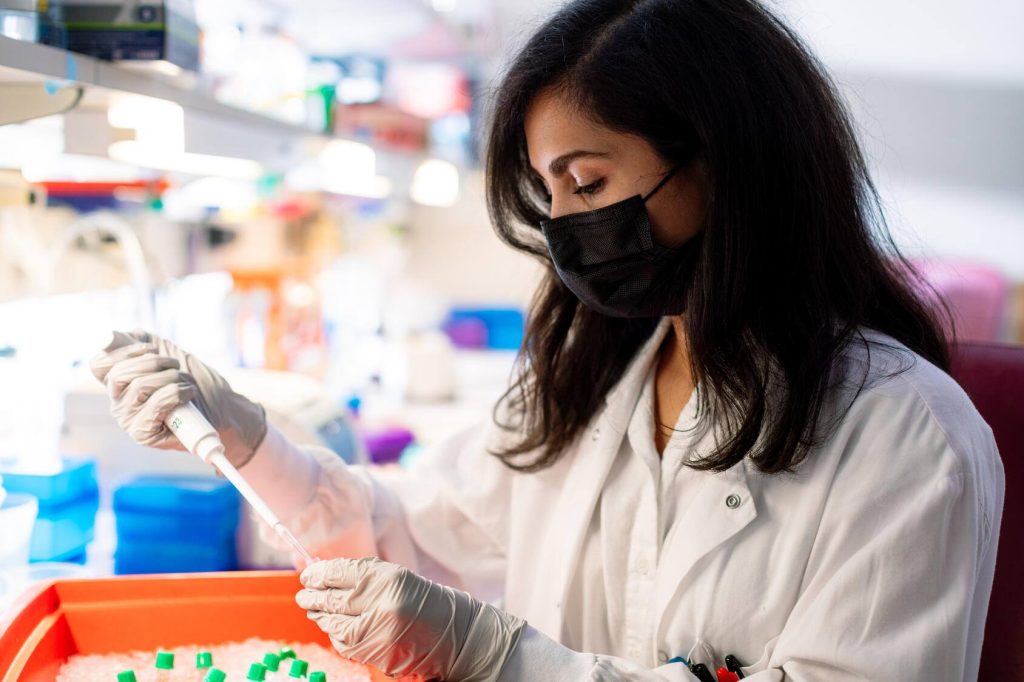-
Cancer
Researchers seek to improve success of chimeric antigen receptor-T cell therapy in non-Hodgkin lymphoma

JACKSONVILLE, Fla. — A study published by researchers from Mayo Clinic Cancer Center at Mayo Clinic in Florida and Case Western, Cleveland Medical Center, investigates the reasons for decreasing remission rates for patients with non-Hodgkin lymphoma treated with chimeric antigen receptor-T cell therapy (CAR-T cell therapy). The study is published in Cancer Discovery.
"CAR-T cell therapy is a promising treatment for non-Hodgkin lymphoma, especially for patients who have relapsed or those who have not responded to prior therapies," says Tae Hyun Hwang, Ph.D., a researcher at Mayo Clinic Cancer Center in Jacksonville, Florida.
However, Dr. Hwang says that recent long-term follow-up data suggest that the success rate of CAR-T cell therapy for patients with non-Hodgkin lymphoma may be decreasing. "Lasting remission in this setting ranges from 30% to 40%," so it is critical to identify a predictive biomarker to measure CAR-T cell resistance so we can better match patients with effective therapy," says Dr. Hwang.
"The overall goal of our research is to support precision oncology care. Novel therapeutic strategies will help us improve the efficacy of CAR-T cell therapy for patients with non-Hodgkin lymphoma," says David Wald, M.D., Ph.D., of Case Western, Cleveland Medical Center, the study's co-author,
"Our team hypothesized there would be distinct molecular patterns in CAR-T cells between patients who responded to treatment and patients who did not respond," says Dr Hwang. He says the team used innovative computational and experimental approaches to identify these patterns.
Researchers generated single-cell RNA and protein sequencing data for CAR-T cells before they were administered to patients and again at multiple points after being infused in patients. Dr. Hwang says this work generated more than 133,000 single-cell expression profiles that researchers used to develop and apply computational approaches to dissect single-cell level RNA or protein expression patterns of CAR-T cells associated with treatment response.
Using these computational approaches, the team found that a gene called TIGIT — a T cell — was highly expressed in post-infusion CAR-T cells from patients who did not respond to CAR-T cell therapy. The team also validated that TIGIT drives CAR-T cell exhaustion and dysfunction, and they discovered that blocking TIGIT with CAR-T cell therapy could improve treatment efficacy in an in vivo study.
"If our findings can be validated in prospective clinical trials, our TIGIT blocking strategy with CAR-T cell therapy may improve current CAR-T cell therapy responses in patients with non-Hodgkin lymphoma and may also improve patient survival," says Dr. Hwang.
###
About Mayo Clinic Cancer Center
Designated as a comprehensive cancer center by the National Cancer Institute, Mayo Clinic Cancer Center is defining new boundaries in possibility, focusing on patient-centered care, developing novel treatments, training future generations of cancer experts, and bringing cancer research to communities. At Mayo Clinic Cancer Center, a culture of innovation and collaboration is driving research breakthroughs that are changing approaches to cancer prevention, screening and treatment, and improving the lives of cancer survivors.
About Mayo Clinic
Mayo Clinic is a nonprofit organization committed to innovation in clinical practice, education and research, and providing compassion, expertise and answers to everyone who needs healing. Visit the Mayo Clinic News Network for additional Mayo Clinic news.
Media contact:
- Joe Dangor, Mayo Clinic Public Affairs, newsbureau@mayo.edu







